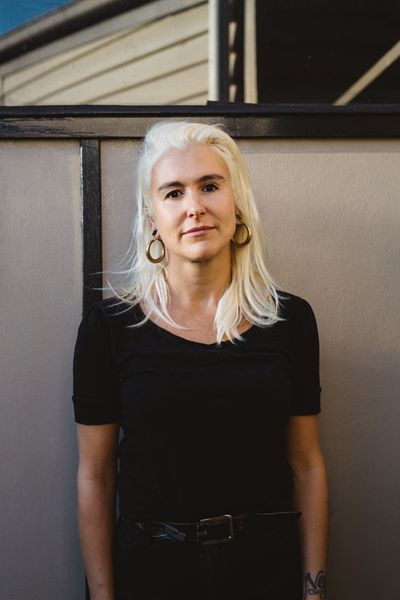Jamila Rizvi interviews Briohny Doyle about her memoir of ‘adulthood’, Adult Fantasy.
Briohny Doyle and I are seduced by the same kinds of clickbait.
Acknowledged collectively with the hybrid term ‘listicle’, these are the stories Buzzfeed pioneered but that are now produced en masse by everyone from Cosmopolitan to Business Insider. Thirty things you should know by thirty, 12 signs you’re ready to settle down, What percentage ‘grown up’ are you really? and, of course, How many smashed avocados would you have to sacrifice to buy a house? They promise shrewd and simple assessments of your hot mess of a life, alternatively delivering either reassurance or degradation. Occasionally both.
Adult Fantasy, Doyle’s first nonfiction work, appeals to the same consciousness that prompts us to click on those articles. By contrast though, Doyle’s exploration of what maturity and adulthood mean for the millennial generation is thoughtful, insightful and genuinely worth the time. Weaving together historical context, observation and her own laugh-out-loud-funny experiences, Adult Fantasy is cleverly written and very readable. It moves effortlessly from inconsequential, even silly, anecdotes to well-researched philosophical and cultural critique.
Doyle’s academic smarts lend the book a kind of cred that this topic might not otherwise attract. An Endeavour Award recipient who studied at Yale and the University of California Santa Cruz, Doyle brings rigour to a subject usually shrouded in hysteria and outrage. The media fodder of pitting generations against one another isn’t what Doyle is about. Adult Fantasy doesn’t contain a defence of millennials or generation Y, but rather a sensitive, mostly supportive, examination. Boomers and generation X will get just as much out of reading Adult Fantasy as younger people will. Doyle values diversity, while acknowledging the homogeny of feelings around coming of age.
‘Generationalism allows us to lump a whole lot of different, nuanced people in together based on one aspect of their lives and destroy them,’ Doyle tells me. ‘We need to be able to talk about this stuff without accusing one another and judging anyone with a different experience. How can we connect to the structural realities that make us when all we can do is yell and scream and have tantrums? We all act like babies about this stuff, from grandparents to teenagers.’
Instead of reducing those dubbed ‘the Peter Pan generation’ to a bunch of stereotypes, Doyle unpacks the complexities and allows for contradictions, including those within her own experience. She explores marriage and questions its relevance, while admitting she desires her own sparkly-ring-and-white dress moment. Staunchly disinterested in having children of her own, in one scene Doyle becomes a captive to time while watching kids play at the local school. She turns her nose up at the linear model of career success, but remains anxious about not having a ‘grown-up’ job.
Work and the fragmentation of the workforce, issues of casualisation and job insecurity, are central themes of Adult Fantasy. While stressing that the multiple adult ‘milestones’ she canvasses are interconnected, Doyle says the changing nature of work is probably the most significant. She is frustrated by unregulated management of small businesses, management that she says impacts the personal lives of workers; many of them young, unsure and disempowered.
‘It’s also linked to the welfare system … the fact that universities sell study as buying a readymade identity,’ Doyle says. ‘More than ever we go to university and we go into debt to get a degree that is said to be an investment in our future. But it doesn’t turn out that way.’
I wonder aloud why unionism doesn’t feature in the book and ask if this is emblematic of a generation’s experience. Doyle is a member of her union, but is reflective about why that element of her working life doesn’t feature. ‘The way that casualisation works is that it fragments the workforce,’ she says. ‘You can get fired without getting fired. It makes it harder for workers to unionise and collectivise … it makes us weaker.’ This has changed the coming-of-age experience for millennials in a way that hasn’t been fully explored, Doyle argues.
Adult Fantasy isn’t preachy. The voice is unashamedly complex and incongruous. In parts, I feel annoyed by Doyle as she critiques life choices I myself have made, but on the next page I find her an endearing narrator once more, imagining a hypothetical future in which we’re good mates. Her writing exposes my own vanities and hypocrisies. In this same vein, Doyle has personal anxieties about how the book will be received. ‘I hope people see that I’ve used my own experience to catalyse a deeper investigation,’ she says earnestly. ‘If people disagree, I hope they can see how I came to it and that it could start a discussion. I don’t want this to add to the noise.’

I ask about the personal nature of the book and why was it so important to use Doyle’s own experience as the foundation for a largely analytical work. ‘I wanted to make it personal because work, family, identity, all of this is [personal]’ she replies. This book is about ‘connecting the common to the common and the specific to the specific. In theory we have heaps more choice [than generations before] but in practice we don’t. I’m supposed to have all of these options but I don’t see a single path right now that works …’
Doyle trails off before talking to me about the past. Of friends and suicide, helplessness and longing, of young people giving up on life when they felt they were out of options. She goes quiet for a while, reflective, before saying – part defensive and part jokingly – ‘it’s not that they were entitled young arseholes’. It’s the same criticism levelled daily at millennials, a criticism Doyle has beautifully and compellingly debunked. Adult Fantasy is the beginning of a conversation about generationalism that Australia sorely needs to have. And Briohny Doyle has kicked it off in a careful, considered and compassionate way.


